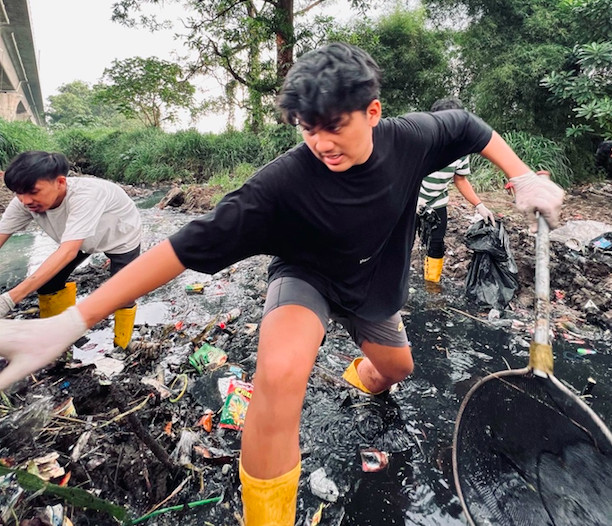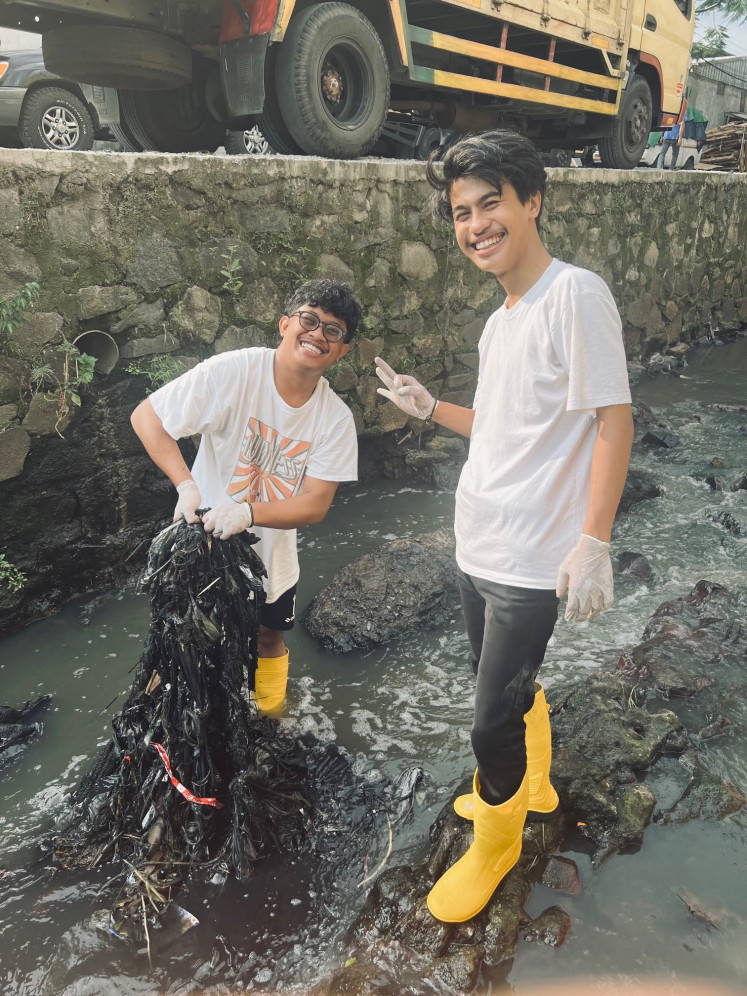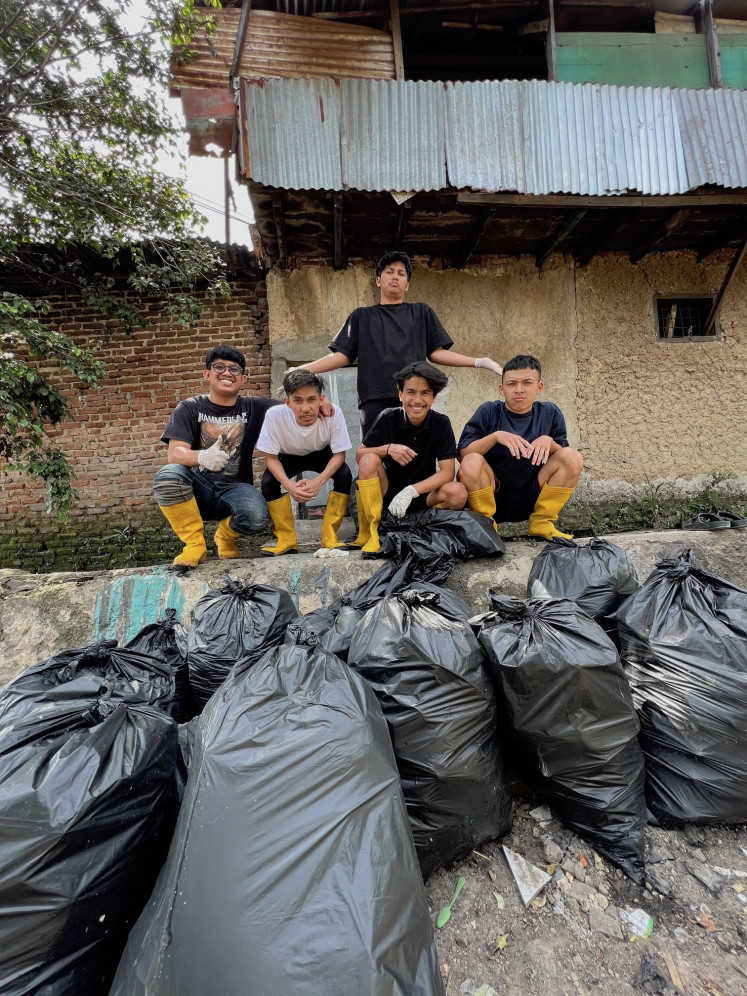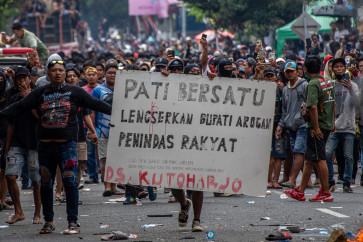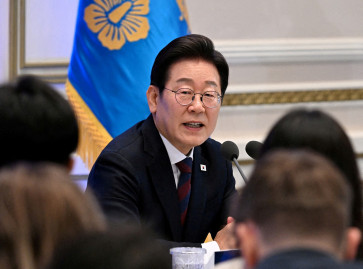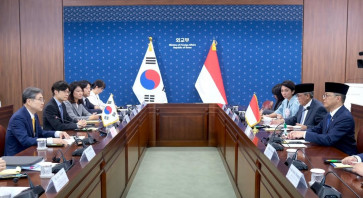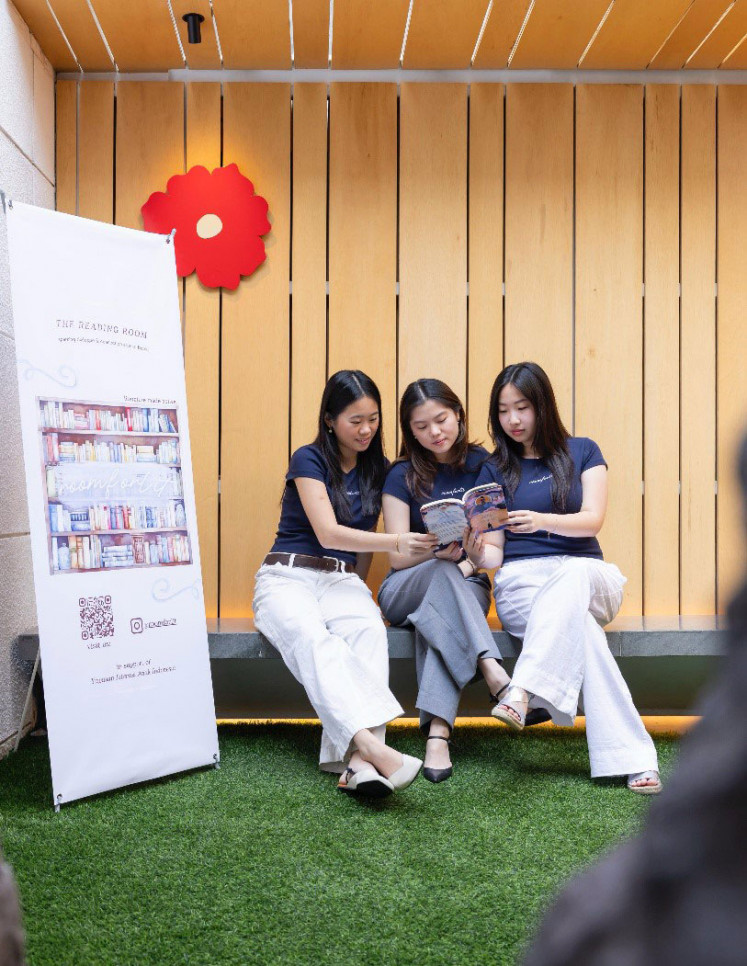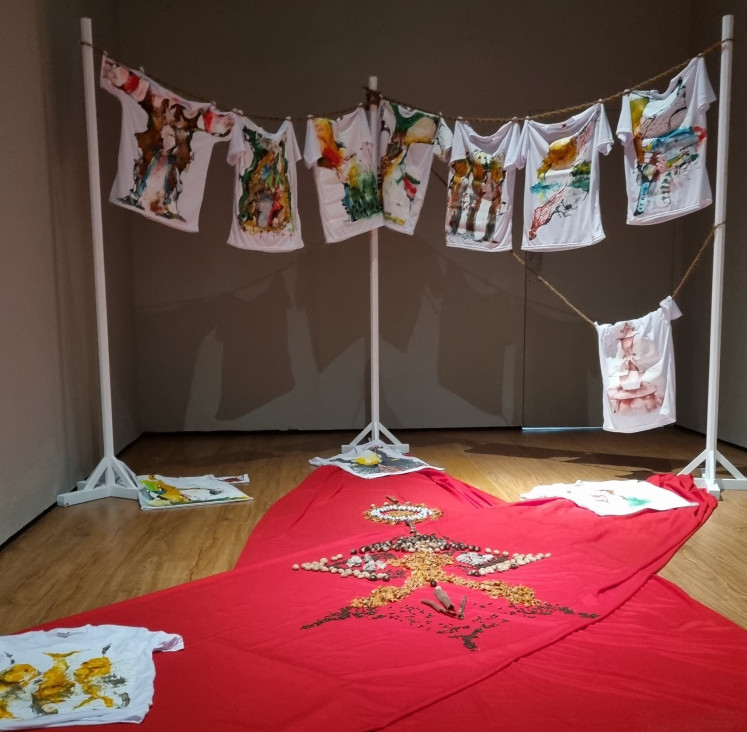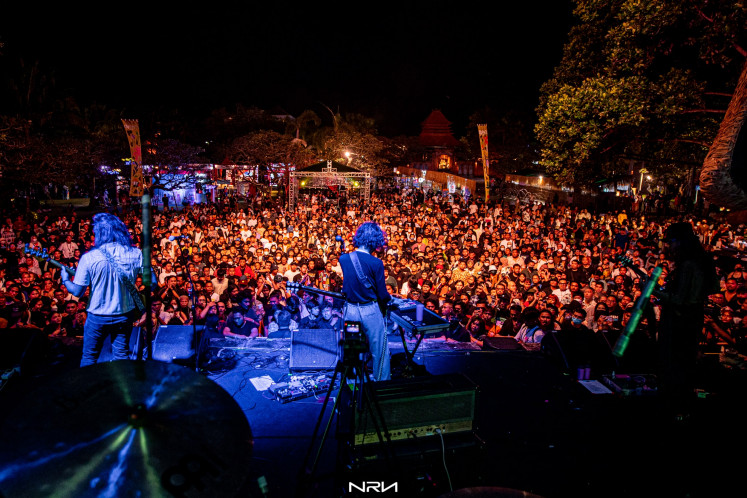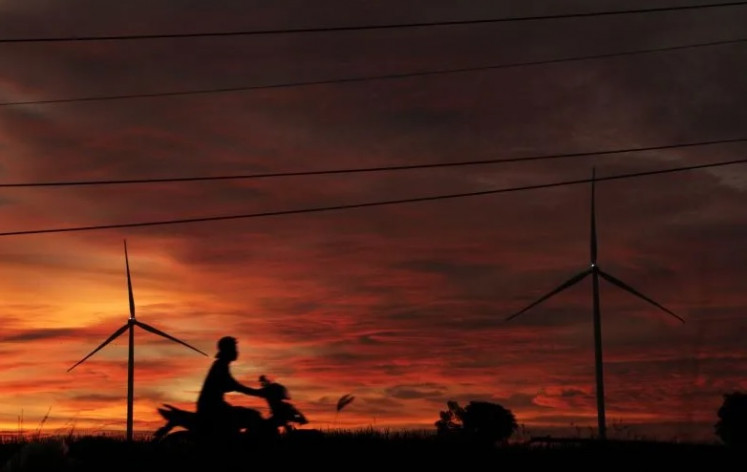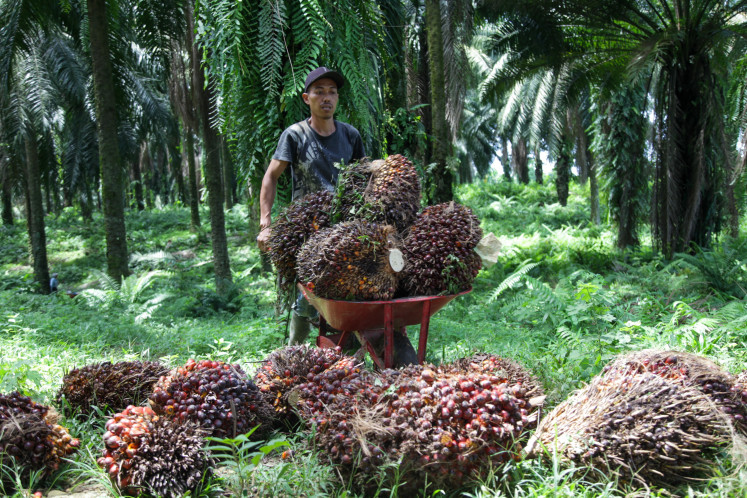Popular Reads
Top Results
Can't find what you're looking for?
View all search resultsPopular Reads
Top Results
Can't find what you're looking for?
View all search resultsTrending on TikTok: Bandung’s river-cleaning group highlights environmental issues
With over 700,000 followers on TikTok, the Pandawara Group puts waste problems under the spotlight, inspiring others to care for the environment.
Change text size
Gift Premium Articles
to Anyone
W
ith over 700,000 followers on TikTok, the Pandawara Group puts waste problems under the spotlight, inspiring others to care for the environment.
When TikTok account @pandawaragroup first posted their videos of cleaning rivers in Bandung in August 2022, they did not do it for fame. But to their surprise, their content has been seen and liked by millions of people over the past few months.
Gilang Rahma, Muhammad Rifqi, Muhammad Agung, Ikhsan Destian and Rafly Pasya are just ordinary 22-year-olds who often hang out in one of their houses in Kopo, part of the southern area of Bandung. Six months ago, they were gathering at Gilang's house when it suddenly flooded.
"We were not doing anything in particular at that moment, but it was raining hard outside. We did not expect that the house would be flooded!" Rifqi recalled.
For several years, the southern part of Bandung has repeatedly been flooded. Gilang told The Jakarta Post that, in 2015, they experienced one of the worst floods.
"The water was so high, it reached the height of an adult's chest. In my house, we found a snake swimming in the water," Agung chimed in.
The incident inspired them to form the Pandawara Group where they join forces to clean the surrounding environment. The group’s name is derived from Pandawa, a group of five brothers in the Mahabharata wayang stories which consists of Yudhistira, Bima, Arjuna and twins Nakula and Sadewa.
Pandawa is also a group of heroes in the Mahabharata stories. TikTok’s Pandawara Group, in their own words, thus hopes to "become the heroes who bring good news to the rivers in Bandung.”
Social sensation
The Pandawara Group has now cleaned 32 rivers and smaller waterways around southern Bandung. They have also gathered 2,800 bags, each one filled with five kilograms worth of trash.
"We realized that we cannot only blame the government [for] the floods; we [as a society] are also at fault," Gilang said. "[Once when we were] cleaning the rivers, we found a sofa with a width of 1.5 meters in a waterway of the same size. No wonder the water overflows. We also found a big mattress!"
The group then realized that something needs to be done for the people to change their behavior. They decided to create videos on TikTok to raise awareness on how polluted the rivers are in Bandung and that cleaning them up can be a fun activity. What the group did not expect, though, was that their content went viral.
Today, the Pandawara Group has 708,400 TikTok followers. Their videos have accumulated 17.9 million likes and their least-watched videos have been played 218,000 times. For a group with videos about cleaning the rivers, those numbers are high.
"When we saw that our videos went viral, we were grateful. The good thing is that apparently, we have inspired a lot of people to do the same, [some have] commented on how they wanted to clean the rivers near their houses and some even asked to join us and become volunteers," Gilang told the Post.
Making a change: The Pandawara Group posts their cleaning activities on TikTok to raise awareness on how polluted the rivers in Bandung are. To their surprise, their videos went viral and inspired others to care about the environment. (Courtesy of Pandawara Group) (Courtesy of Pandawara Group/.)Effective campaign
Looking at how the Pandawara Group videos went trending, the Post reached Elok Mutia, a senior environmental campaigner for the Change.org Foundation, to explore more on how environmental campaigning works in Indonesia.
Mutia was not surprised to see millions of people enjoying and getting inspiration from the Pandawara Group videos. She thought the content was trending because they showed a visible transformation of a dirty, trash-filled river to a cleaner one.
"There is research done by Purpose & Enter Nusantara [both entities focusing on environmental issues], which showed that in terms of the environment, Indonesians prefer a solution that they can see and do on a day-to-day basis,” she said, noting that waste issues are deemed more “visible” and thus most people care more about it rather than energy or mining impacts on the environment.
She also pointed out that, with the growing number of environmental organizations and movements, Indonesians are more aware of environmental problems.
"One thing that we have to remember, however, is that we have to stop using the top-down approach. We have this assumption that people in rural areas do not care about the environment, while in reality, they do. We just have to use a language that resonates with them.”
Mutia further added that many people thought they need to go to great lengths to be an environmentalist or a social justice activist. However, the Pandawara Group sets an example that anyone can take care of the environment by taking small steps at a time.
Mutia commented, “What they [the Pandawara Group] do, to some extent, is an act of environmentalism. We do not have to [do big things] to become an environmentalist.”
One trash bag at a time: The Pandawa Group smiles over their accomplishment. Since they began cleaning rivers in August, they have collected 2,800 bags of trash. (Courtesy of Pandawara Group) (Courtesy of Pandawara Group/.)‘We are not environmentalists’
When asked whether the Pandawara Group consider themselves environmental activists, all of them shook their heads and laughed.
If local governments invite them to be an “environmental ambassador,” they would also turn down the offer. They thought such a title would be more of a burden. The Pandawara Group prefers to focus on their work and real actions.
"Sometimes I am still confused as to why we get interviewed or when public figures invite us to talk," Rifqi said. "I think what we are doing right now is something simple, there's nothing new or interesting about it!"
Still, the Pandawara Group has bigger dreams for their activism. Their long-term goal is to establish a waste management system.
"We want to have a trash barrier that we can install in waterways and rivers. Then, we also want to learn and have a place where we can recycle plastic and other waste that we found in the river," Rifqi explained.
The Pandawara Group needs time and a long-term plan to realize those dreams. Until then, there is no stopping them in taking care of the surrounding environment and inspiring others through TikTok.

